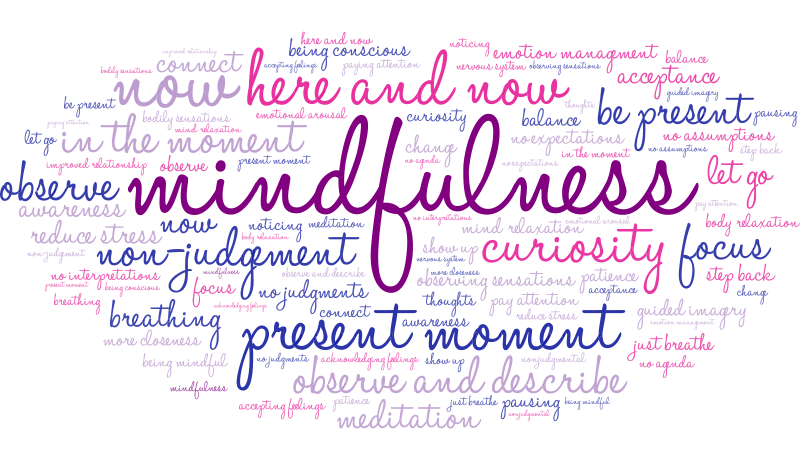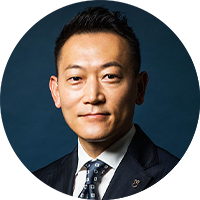Coach's VIEW is a business column authored by executive coaches in COACH A, aimed at providing valuable insights and effective approaches for leveraging coaching to foster organizational and leadership development. The column draws on the latest coaching trends and data, as well as insights from notable global publications on coaching.
What Kind of Person Do You Think He/She Is?

"You, people like to classify, distinguish, categorize everything.
You, people who say that there are two kinds of people in this world, people who have the habit of categorizing and people who do not have the habit, are the target
...
You, people who cannot feel at ease unless you categorize" (*1)
These are the lyrics of a song I frequently hear in town lately. When this song comes on, I feel as if I am being asked the following questions.
- Are you labeling yourself and forcing yourself into a category?
- Are you making yourself feel secure by doing so?
- Shouldn't we see more of our own possibilities?
The following passage is extracted from an article published in the Harvard Business Review.
Too many leaders default to looking at decisions as either-or: The answer is right or wrong, good or bad, win or lose. This binary thinking has a built-in limitation: Overrelying on any given solution eventually generates the opposite problem.(※2)
Apparently, people tend to have "binary thinking" where they choose only between two options.
"Am I Doing Well?" Where Does This Question Come From?
As the executive coach, I have had the privilege of coaching many leaders. Even though I have accumulated lots of coaching experiences, I have never gotten accustomed to it and I experience a wide range of emotions before each session with my client.
Not all of them are exciting feelings. I feel embarrassed to write this but I sometimes feel nervous. There are also times when I feel joy, and at other times, I feel daunted. Thereafter, I feel that my emotions affect the coaching sessions with my clients considerably.
For example, there are some clients that make me feel very anxious when the day of the session is approaching. From the morning of the session day, I feel a sense of restlessness that cannot be fully described by the emotion of anxiousness or uneasiness. For the sessions that I joined in such a condition, I find myself assuming an overly humble attitude, I hesitate to communicate frankly, or I flatter the client to gain favor.
This is a failure as a coach.
"Am I doing well?"
I realized that such a question created those emotions that I had.
Where does this kind of question come from?
The Risk of Losing Sight of the Other Person
In retrospect, there exists the following binary thinking.
- Is the person proactive or not proactive about coaching?
- Does the person understand coaching or not?
- Does the person feel that the coaching with me brings value or not?
- Is the person easygoing or not?
Through my binary thinking, I label the person as a "XX type of person" in my mind as I like. When that label is "someone who does not understand coaching" or "someone who is not proactive in coaching," I find myself asking, "Am I doing well?"
The lyrics of the aforementioned song include such phrase;
In other words, it is not that simple.
It is more ambiguous, subtle, unclear.
Yes, people are supposed to be complex and cannot be described easily in a binary way. It can be said that binary thinking patterns give rise to the danger of losing sight of the other person. So how can we get out of this thinking pattern?
From "Assumption" to "Interest and Curiosity"
When I fall into such a condition, I make sure that my fellow coach asks me, "What kind of person do you think the client is?" When I am asked this question, I realize how many "biased" assumptions I am making about my client, even though I do not know if that is really the kind of person he/she is.
What is more interesting is that as I answer the question, "What kind of person do you think that person is?", I came up with a new interest and curiosity to want to know "What kind of person is he/she really like? Furthermore, the person will manifest as a three-dimensional being and makes me eager to meet him/her and ask various questions.
At that moment, the emotions that had been agitating me since earlier have become quiet.
The great tip for changing your relationships with others is here.
It is normal to label others. However, that label will affect your relationship with them in some way. Now imagine the faces of your bosses, co-workers, and subordinates.
Who would you like to change your relationship with?
What kind of person do you think he/she is? Do you have any biased assumptions?
REFERENCE:
※1 SEKAI NO OWARI "Habit", lyrics by Fukase, music by Nakajin, arrangement by SEKAI NO OWARI, June22, 2022
※2 Tony Schwartz, “What It Takes to Think Deeply About Complex Problems”, Harvard Business School Publishing, May 09, 2018
https://hbr.org/2018/05/what-it-takes-to-think-deeply-about-complex-problems
*Regardless of profit, non-profit or intranet, secondary use such as copying, diversion, selling etc. is prohibited without permission.
Language: Japanese

